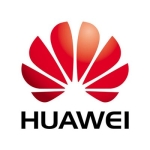Right now, we've seen a few different systems that we're running on the all-flash system, where we've seen performance increases with application functionality. We have databases running on there. The database query is running faster. The application is running faster in general. It has saved us by not having to tax the system to get the data access going quicker, less network usage. People using the applications are able to perform their tasks more quickly.
Learn about the benefits of NVMe, NVME-oF and SCM. Read New Frontiers in Solid-State Storage.
I'd say the biggest one for us, other than just being SSDs, was the compression; inline compression, inline dedupe. Previously, we used dedupe but compression in dedupe has helped a lot, just to be able to maximize our storage, not having to buy more disk and items such as that. That is the biggest one we've seen so far.
It’s difficult to say because there are already a lot of features that have been released that we didn't have previously, especially going from 7-mode to cDOT. ONTAP 9 sounds really interesting with better dedup and compression; the disk partitioning features that they are going to be doing with that. I'm eager to see what ONTAP 9 has. Right now, I believe were on 8.3, so we’re definitely going to be interested in upgrading that when it comes out.
I’m not sure if I see anything that's really lacking because there are so many features that we still have not taken advantage of that we could probably use going forward; no specific ones that I can see right now.
We've only had it about two or three months. We haven't had any issues since we've had it up. It's been in production and has been rock solid so far. I don't have a long-term say on that yet, but it's been really good so far.
Learn about the benefits of NVMe, NVME-oF and SCM. Read New Frontiers in Solid-State Storage.
We're not a huge shop. Our previous NetApps have always been a two-node setup. Right now, I don't really necessarily see us scaling out any more. We were pretty much a 7-mode shop previously; now, we're a cDOT for these 8080 AFFs. With cDOT, it's very nice how you can scale it out and add more nodes to it. I don't necessarily see us taking advantage of that anytime soon. It's nice to have the option there.
We've had 30-40 controllers for about five or six years now and we've previously had the NetApp 2000 series. We have kind of been a NetApp shop. We've had different vendors like Pure Storage previously come in just to talk about stuff. I think the main reason we went to All Flash was the price point.
When we were looking, we were doing a big project in which we were re-hauling a lot of our core infrastructure. We wanted to refresh the hardware on the NetApps. At the time, we were looking at doing a hybrid of spinning disk and SSDs; maybe doing flash pools and that kind of stuff. Then, working with our vendor and working with NetApp, we were going to need more space anyway so the cost of the new system plus additional shelves for the space was pretty much the same price at which they could give us an All Flash system. With the 4-to-1 compression and the similar features All Flash has to offer, it was kind of a no-brainer to move to that; a lot of performance increase as well, being on All Flash.
A lot of our workloads aren't really disk-intensive, so we don't really need all flash, so at the time it wasn't needed, but the price point that NetApp was able to bring it in at was a deciding factor. Also, at the time that we reviewed Pure Storage, a lot of our systems were using multiple protocols on the same controller; we were using fiber channel, NFS, CIFS. The Pure Storage systems, at least when we reviewed them at the time, they didn’t really support all of those protocols on the same controller. We would have to buy multiple systems to be able to cover all our protocols. That made them more expensive. That was definitely a disadvantage for them.
I was in charge of the original setup. I worked with our vendor to help actually do the install and configuration. It went really well. Coming from a 7-mode background to a cDOT was definitely a lot different with the lists and similar items to configure. It was very straightforward. We pretty much got it on the network within something like 30 minutes; got our VMware environment pointed to it and within a couple of hours, we already had data on it in the first half of the day.
I don't have a lot of experience with other vendors. We've reviewed Pure Storage, and even though we didn't officially have Nimble in, we've talked to Nimble at a lot of booths in some of the trade shows. They are pretty much the same as Pure Storage when it comes to some of their features, restrictions and similar items. EMC, I don't have any experience to speak for.
I've been using NetApp for a long time now, so I really like NetApp, especially with the new ONTAP features, with clustering going forward. Give a good look at NetApp. They have treated us well and their product has been really rock solid for us.












Hi, I'm a NetApp trainer and wanted to point out a new capability in ONTAP 9.1 regarding your Scalability/Improvement comments:
"With regard to performance, storage pools/aggregates are tied to a single node, so a storage device/LUN can only use CPU/memory of that particular node."
Since 9.1 FlexGroups are GA. Check them out. They decouple FlexVol performance from nodes and aggregates/StoragePools... Check out TR-4557 and TR-4571 for Info and Best Practices.